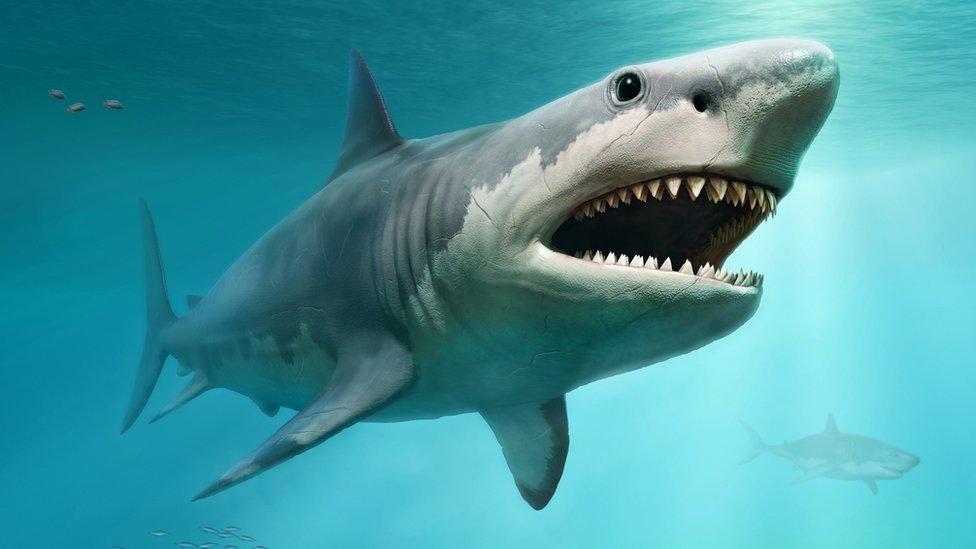This could be the biggest animal to have ever lived on Earth
- Published
- comments
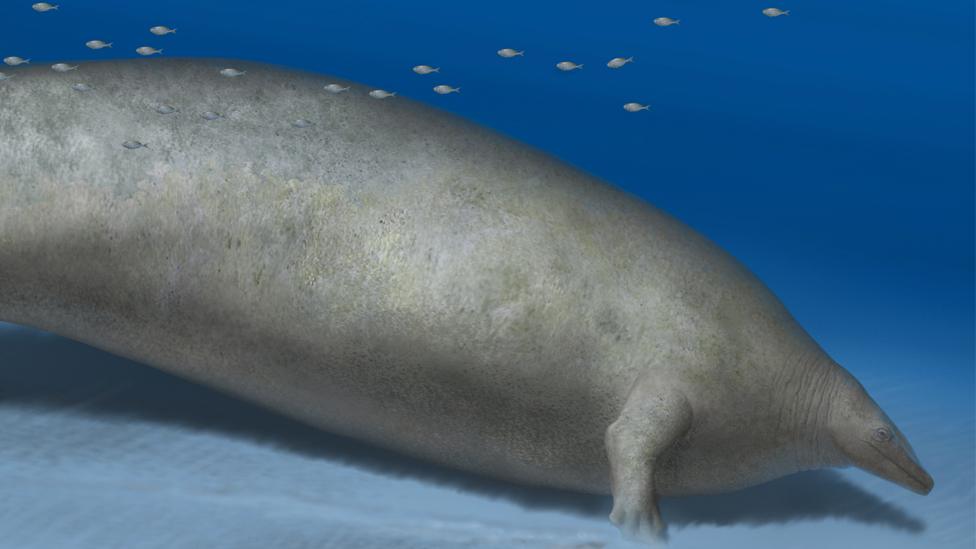
Scientists reckon this could be the heaviest animal to have ever lived on earth.
It's called Perucetus colossus and would've roamed shallow waters around 39 million years ago.
Its fossilised bones were dug up in the desert in southern Peru.
Researchers say the ancient, long-extinct whale would've weighed around 200 tonnes - that's approximately the same weight as around 33 African elephants!
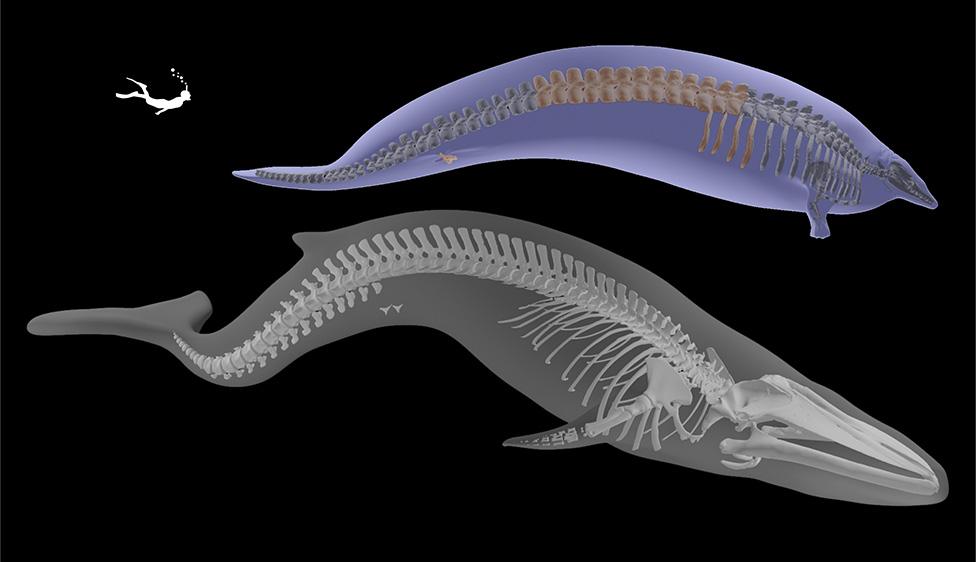
Perucetus would have been shorter than the average blue whale but much heavier
The blue whale is the biggest animal on Earth as we know it, with an average weight of around 150 tonnes.
The Perucetus wouldn't have quite reached the same length as a blue whale, coming in at around 17-20 metres, but it is much heavier.
The bones excavated by researchers are much more dense than bones of a blue whale, which contribute to its weight.
The fossils were actually found 13 years ago, but because of they're so big and heavy, it took three years to get them to the capital of Peru, Lima, to be able to study them.
18 bones were recovered - 13 vertebrae, four ribs and part of a hip bone.
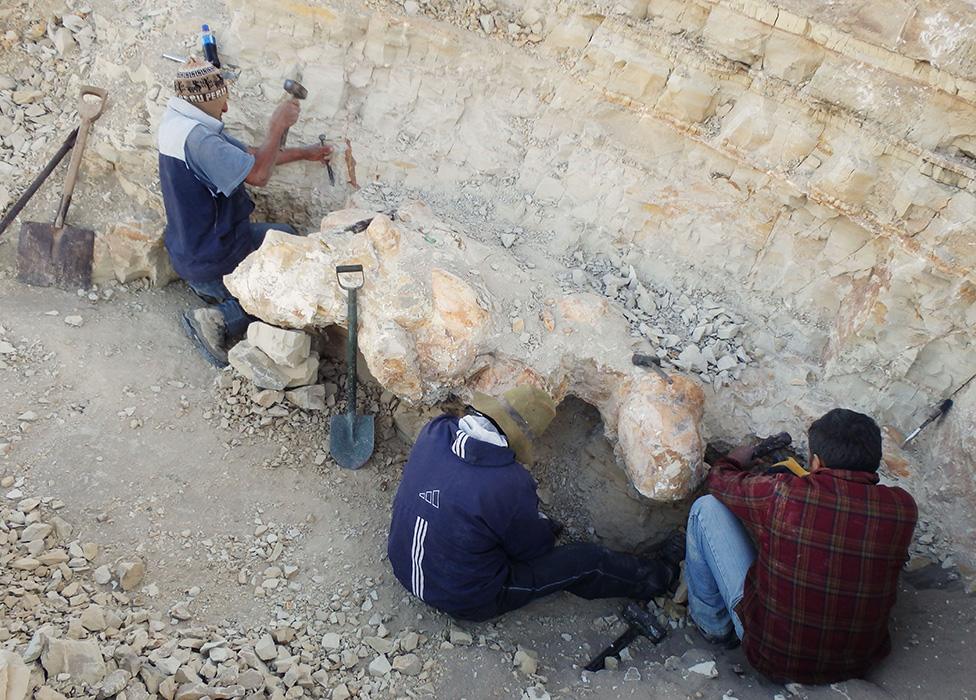
It took an immense effort to extricate the bones from the hard desert rock
It's believed the Perucetus would have foraged for food in shallow waters like modern-day manatees because their bones have some similar traits.
They're very dense and have extra layers on the outside of the bones, making them thicker.
It's thought to be due to an adaptation that would have helped the marine mammals to control it's buoyancy (how well something floats in water).

Dr Eli Amson is one of the researchers on the discovery team and a curator at Germany's State Museum of Natural History Stuttgart said:
"What we like to say is that Perucetus is in the same ball park as the blue whale," he told BBC News.
"But there's no reason to think that our individual was particularly big or small; it was likely just part of the general population."
- Published30 June 2023
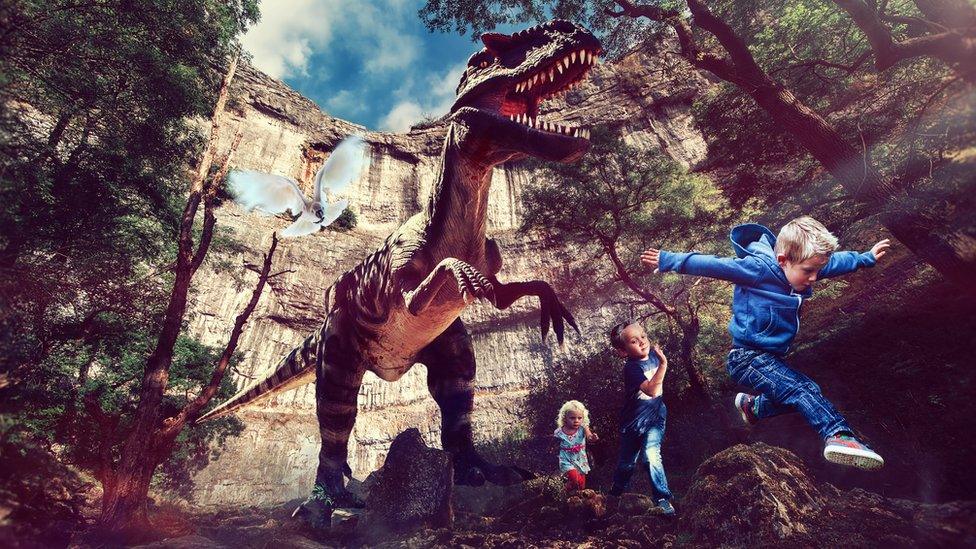
- Published16 June 2023
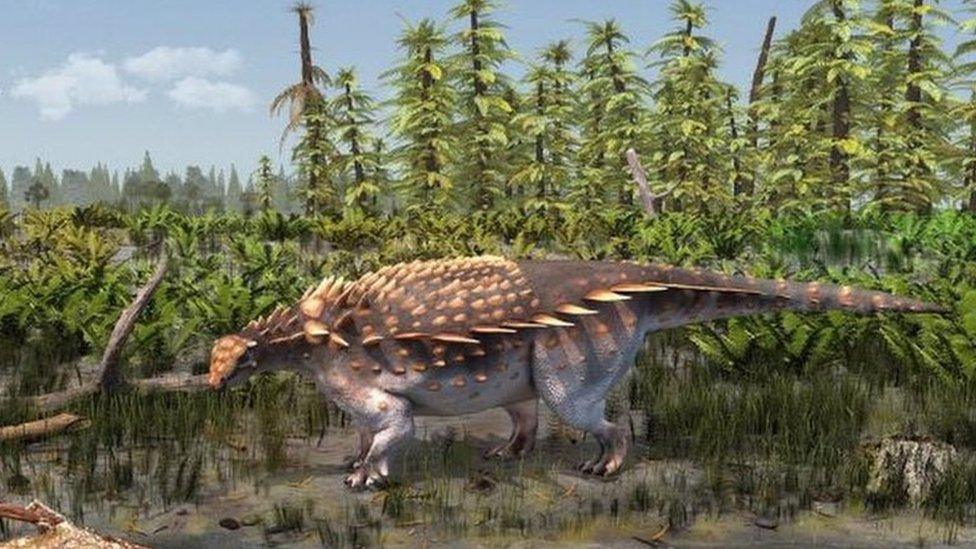
- Published2 July 2023
